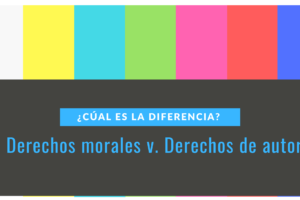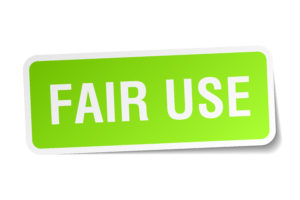This series of posts is dedicated to copyrights. The first post touched on the general aspects of copyrights. The second post on works made for hire. In this post we will discuss the first sale doctrine as it applies to copyrighted works.
The first sale doctrine of copyrighted works is something that causes great confusion. So much so that, the U.S. Department of Justice has a section dedicated to it in its Justice Manual.
What is all the fuss about? The first sale doctrine has a complicated definition to navigate through. For discussion purposes, we’ll stick with the summarized version of the U.S. Department of Justice. In general terms the first sale doctrine states that,
An individual who knowingly purchases a copy of a copyrighted work from the copyright holder receives the right to sell, display or otherwise dispose of that particular copy, notwithstanding the interests of the copyright owner. The right to distribute ends, however, once the owner has sold that particular copy.
This right does not extend to any person who has acquired possession of the copy from the copyright owner by lease, rental, loan or otherwise, without acquiring ownership of it.
For the full version of the text see 17 U.S.C. 109.
In essence, the first sale doctrine allows the copyright owner to retain control over the work until sold. Once the first sale of the work is completed, it is out of the control and possession of the copyright owner (this is also known as transfer of ownership). With the purchase, the buyer attains the ability to resell the work. The only way the copyright owner can retain or limit this right is through a written contract. In the contract, the copyright owner has to specify which rights are being reserved and which are granted to the buyer.
It’s important to understand that the first sale doctrine only grants the buyer the right to sell or distribute the copy of work legally acquired. The first sale doctrine does not grant the buyer the right to reproduce the work. Reproduction of the work is an unlawful use. Any unauthorized reproduction of a copyrighted work is, for legal purposes, considered copyright infringement.
Real life scenarios.
Let’s discuss this in a real life setting. Let’s say I legally purchase 50 physical copies of a U.S. History textbook at $30.00 a book. As the buyer of the books, I can resell the books at a higher or lower price point, or even give them out for free. The copyright owner cannot come after me for reselling the books. What I cannot do is reproduce or otherwise copy the books. This includes scanning, converting to .PDF, uploading or photocopying. This would be an unauthorized use of the copyrighted work.
What about the images, music, movies, books, magazines and software we acquire online, through downloads or other installation process? Typically, these are not purchased from the copyright owner. They area rented or leased through subscription or licensing agreements for specific purposes or for limited periods of time. Once the subscription or lease term is up, you loose the right to access or otherwise use the work. This is because you were never a buyer, only an authorized user. In other words, there was never a transfer of ownership. In these types of works there is never a first sale, only a right to use. Therefore, you cannot resell or reproduce the work. Doing so, is considered copyright infringement.
Stay tuned for upcoming posts on fair use and more.
Author: Patricia Ramírez Gelpí, J.D., LL.M.
Image: William Potter/Shutterstock.com





